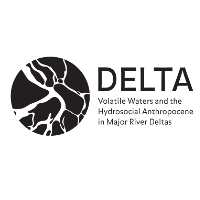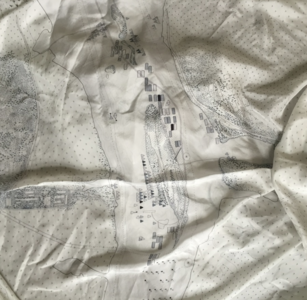We welcome abstract submissions for our panel at this year's Biannual Conference of the European Association of Social Anthropologists (EASA), which will take place from July 21 to 24 in Lisbon, Portugal.
The panel organisation is a cooperation between the DELTA project team and external project partner Werner Krauß from the University of Bremen.
You can find out more about the conference here, and submit your 250 word abstract here. The submission deadline is December 20th, 2020.
Wet horizons: hydrosocial re-articulations in the Anthropocene
Short abstract:
How do changing water regimes insert themselves into social and cultural processes? How do current social and cultural arrangements speed up or abate the proliferation of wet horizons? How are more-than-human beings, including animals, plants and spirits, involved in these re-articulations?
Long abstract:
With shifting precipitation patterns, altered seasonal cycles, increasing droughts and floods, melting glaciers and permafrost, wetness had gained renewed social, political and economic significance. Unruly waters undermine infrastructures and inspire new technologies, displace populations and invigorate stock markets. At the same time, the repercussions of increasingly scarce, overabundant or polluted water reproduce social and political divisions and hierarchies. Clear separations between water and land, as upheld conceptually and materially by Western modernity, are increasingly difficult to uphold. This panel invites ethnographically informed discussions on fluctuating horizons of wetness along coasts and in floodplains, for architecture and agriculture, and related to the infrastructures and policies of their containment. How do changing water regimes insert themselves into existing social and cultural processes? How, in turn, do current social and cultural arrangements speed up or abate the proliferation of wet horizons? How are more-than-human beings, including animals, plants and spirits, involved in these re-articulations? While scrutinizing these processes of hydrosocial transformation, we are equally interested in questions of stability and endurance. This concerns not only the ways in which some horizons may appear unstable to us, but reliable and enduring to our research participants, but also the efforts that go into stabilizing particular hydrosocial relations or distributions of wetness in the context of a changing world. A more nuanced approach to these re-articulations has the potential to counter alarmist disaster narratives of floods and droughts by foregrounding the concrete hydrosocial assemblages that (un)make wet horizons.
Convenors:
Franz Krause (University of Cologne)
Werner Krauß (University of Bremen)
Sandro Simon (University of Cologne)
Nora Horisberger (University of Cologne)
Benoit Ivars (University of Cologne)
This panel is endorsed by the EASA Environment and Anthropology Network (EnviroAnt).
If you have any questions, please feel free to contact the organisers.

